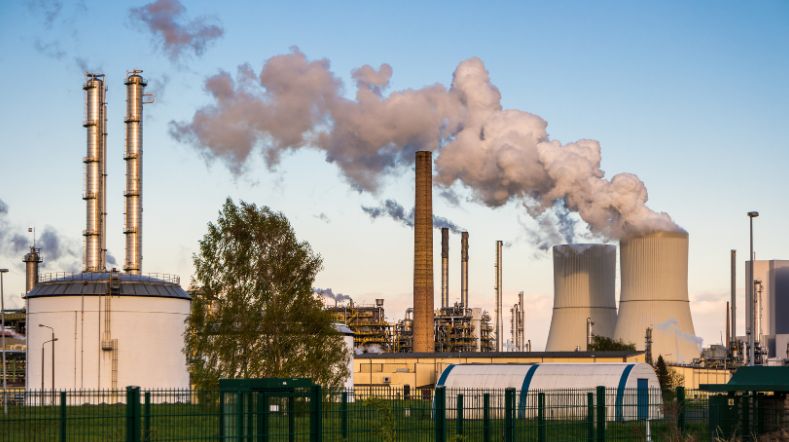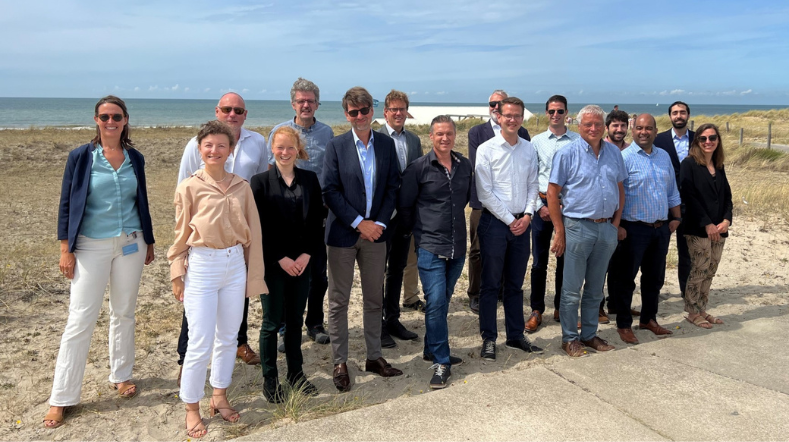SLICE: valorisation of lignin to bio-based chemicals and fuels
In cooperation with
Vertoro, TNO, Green Chemistry Campus
The world currently relies heavily on fossil fuels, leading to significant environmental problems such as climate change and pollution. The European Green Deal aims to reduce greenhouse gas emissions in order to achieve the 2030 emissions reduction target and the Paris Agreement targets. To achieve this, the (petro)chemical industry must explore alternatives.
The consortium, consisting of Vertoro, TNO and Green Chemistry Campus, will work together in the SLICE project to develop and improve a lignocellulosic biorefinery process in a versatile and circular manner. This will not only reduce direct emissions from the process, but will also contribute to realizing a greener economy within the conventional (petro)chemical infrastructure and maritime industry around the Green Chemistry Campus in Bergen op Zoom and the port of Moerdijk.
Two main goals
The project has two main goals. First, it aims to demonstrate the upgrade of crude lignin oils to biobased (bulk) chemicals and fuels in existing naphtha crackers and characterize resulting fuels as drop-in blends for use in current ship combustion systems. In addition, it includes the circular further development of the required processing technology by converting the current residue flows into biomethanol. Secondly, the project aims to develop a Biobased Skills Learning Community around biomass-oriented skills for technical staff from the (petro)chemical cluster around the Green Chemistry Campus and the port of Moerdijk.
What does TNO specifically do?
TNO will apply its expertise in biomass selection, treatment and fractionation into valuable components such as lignin oils, biochar and other biochemicals. By applying a range of technologies such as gasification, pyrolysis, biomethanol synthesis, and bio-oil upgrading, we maximize the output potential of the feedstocks, which in turn, contributes to the energy and materials transition.
A promising alternative in this transition is the use of biomass raw materials, such as lignin. Lignin is a natural polymer of aromatic units that occurs in woody (non-edible) lignocellulosic biomass and residual flows from the agricultural and food industries. Lignin has the potential to serve as a source for fuel and chemical production, but its commercial use is limited due to the lack of efficient technologies for biomass pretreatment and lignin separation.
Thus, to make lignin a viable alternative, cost-effective processing technologies are needed to isolate oligomeric and less condensed lignin from lignocellulosic biomass. This lignin can be dissolved and melted to create a suitable raw material platform that can be used in various high-performance applications. This liquid lignin or biobased crude oil can be further refined and upgraded into sustainable Heavy Fuel Oil (HFO) drop-in blend and (base) chemicals, such as aromatics (BTEX and phenols) and olefins.
Demonstrate production of biobased fuels and chemicals
The main objective is to demonstrate the production of biobased fuels and (bulk) chemicals through the circular upgrading of crude lignin oils from sustainable biogenic raw materials in the existing chemical infrastructure. This innovative and circular process will drastically reduce greenhouse gas emissions, promote economic diversification and ensure a greener energy supply and logistics value chain.
The consortium also aims to address the employment challenges arising from this transition in West North Brabant by developing and introducing a training program for fossil sector personnel in this region. In short, with the completion of this project, this consortium acts as a catalyst in the transition from a fossil to a biomass-based chemical industry in West North Brabant.
Get inspired
HY3+: ensuring security of supply of hydrogen network with neighbouring countries


TNO develops method to produce biocarbon


New technology combines biocarbon production for industry with negative emissions

Ten things to know about carbon capture and storage (CCS)


Producing renewable DME using renewable energy and CO2






